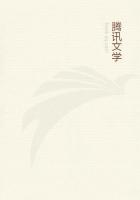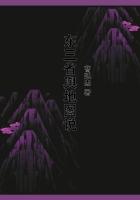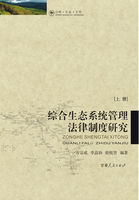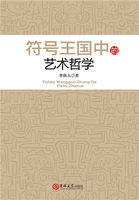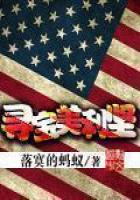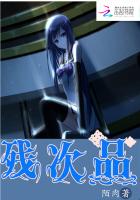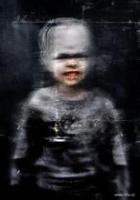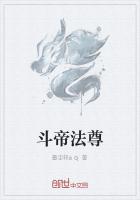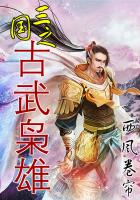Coleridge's distinction does very well to separate, empirically, certain kinds of imaginative concepts from certain others; but it has no real foundation in fact. Nor presumably did he mean it to have. But it serves, not inaptly, as a text to point out an important scientific truth, namely, that there are not two such qualities of the mind, but only one. For otherwise we might have supposed the fact too evident to need mention. Imagination is the single source of the new, the one mainspring of psychical advance; reason, like a balance-wheel, only keeping the action regular.
For reason is but the touchstone of experience, our own, inherited, or acquired from others. It compares what we imagine with what we know, and gives us answer in terms of the here and the now, which we call the actual. But the actual is really nothing but the local.
It does not mark the limits of the possible.
That imagination has been the moving spirit of the psychical world is evident, whatever branch of human thought we are pleased to examine. We are in the habit, in common parlance, of making a distinction between the search after truth and the search after beauty, calling the one science and the other art. Now while we are not slow to impute imagination to art, we are by no means so ready to appreciate its connection with science. Yet contrary, perhaps, to exogeric ideas on the subject, it is science rather than art that demands imagination of her votaries. Not that art may not involve the quality to a high degree, but that a high degree of art is quite compatible with a very small amount of imagination. On the one side we may instance painting. Now painting begins its career in the humble capacity of copyist, a pretty poor copyist at that. At first so slight was its skill that the rudest symbols sufficed.
"This is a man" was conventionally implied by a few scratches bearing a very distant relationship to the real thing. Gradually, owing to human vanity and a growing taste, pictures improved.
Combinations were tried, a bit from one place with a piece from another; a sort of mosaic requiring but a slight amount of imagination. Not that imagination of a higher order has not been called into play, although even now pictures are often happy adaptations rather than creations proper. Some masters have been imaginative; others, unfortunately for themselves and still more for the public, have not. For that the art may attain a high degree of excellence for itself and much distinction for its professors, without calling in the aid of imagination, is evident enough on this side of the globe, without travelling to the other.
Take, on the other hand, a branch of science which, to the average layman, seems peculiarly unimaginative, the science of mathematics.
Yet at the risk of appearing to cast doubts upon the validity of its conclusions, it might be called the most imaginative product of human thought; for it is simply one vast imagination based upon a few so-called axioms, which are nothing more nor less than the results of experience. It is none the less imaginative because its discoveries always accord subsequently with fact, since man was not aware of them beforehand. Nor are its inevitable conclusions inevitable to any save those possessed of the mathematician's prophetic sight. Once discovered, it requires much less imagination to understand them. With the light coming from in front, it is an easy matter to see what lies behind one.
So with other fabrics of human thought, imagination has been spinning and weaving them all. From the most concrete of inventions to the most abstract of conceptions the same force reveals itself upon examination; for there is no gulf between what we call practical and what we consider theoretical. Everything abstract is ultimately of practical use, and even the most immediately utilitarian has an abstract principle at its core. We are too prone to regard the present age of the world as preeminently practical, much as a middle-aged man laments the witching fancies of his boyhood. But, and there is more in the parallel than analogy, if the man be truly imaginative he is none the less so at forty-five than he was at twenty, if his imagination have taken on a more critical form; for this latter half of the nineteenth century is perhaps the most imaginative period the world's history has ever known. While with one hand we are contriving means of transit for our ideas, and even our very voices, compared to which Puck's girdle is anything but talismanic, with the other we are stretching out to grasp the action of mind on mind, pushing our way into the very realm of mind itself.
History tells the same story in detail; for the history of mankind, imperfectly as we know it, discloses the fact that imagination, and not the power of observation nor the kindred capability of perception, has been the cause of soul-evolution.
The savage is but little of an imaginative being. We are tempted, at times, to imagine him more so than he is, for his fanciful folk-lore. The proof of which overestimation is that we find no difficulty in imagining what he does, and even of imagining what he probably imagined, and finding our suppositions verified by discovery. Yet his powers of observation may be marvellously developed. The North American Indian tracks his foe through the forest by signs unrecognizable to a white man, and he reasons most astutely upon them, and still that very man turns out to be a mere child when put before problems a trifle out of his beaten path.
And all because his forefathers had not the power to imagine something beyond what they actually saw. The very essence of the force of imagination lies in its ability to change a man's habitat for him. Without it, man would forever have remained, not a mollusk, to be sure, but an animal simply. A plant cannot change its place, an animal cannot alter its conditions of existence except within very narrow bounds; man is free in the sense nothing else in the world is.

